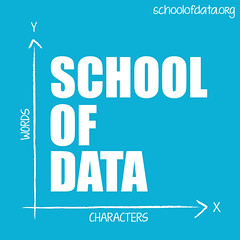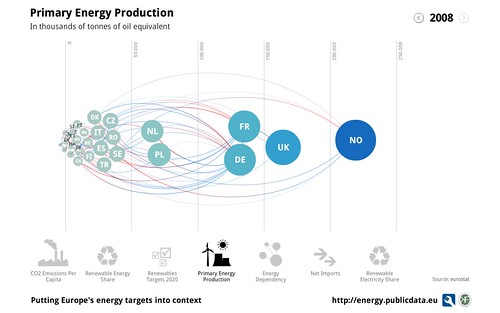Contents
- 1 What is the purpose of the School of Data?
- 2 Why is it needed?
- 3 Who is the School of Data for?
- 4 Is it free?
- 5 How does the School of Data work?
- 6 Community mentoring (as support for the Data Expeditions)
- 7 Can I get a formal qualification from the School of Data?
- 8 Who is behind the School of Data?
- 9 Is the School of Data independent?
- 10 Do you promote any particular political agenda?
- 11 What is the School of Data’s attitude towards proprietary or closed source software and data tools?
- 12 How are School of Data materials licensed?
- 13 I have a question that isn’t answered here, what should I do?
What is the purpose of the School of Data?
School of Data works to empower civil society organizations, journalists and citizens with the skills they need to use data effectively in their efforts to create more equitable and effective societies.
Why is it needed?

There is huge potential to use data and open data to improve the lives of citizens around the world, especially in increasing the transparency and accountability of government.
However, many of the groups who are closest to the problems – NGOs, journalists, and citizens – currently lack the skills to use data effectively — and even an awareness of the potential of data for their work.
School of Data’s mission is to teach people how to gain powerful insights and create compelling stories using data.
Who is the School of Data for?
Everyone!
The School of Data is a global community and people from all backgrounds are welcome to participate. We hope that the School of Data will prove particularly valuable for civil society organisations, journalists and those looking to use data in their workplace (or to get a job).
What levels do you cater for?

The School of Data begins with the basics and aims to get as technical as you need to get. Sometimes you may need to learn a little bit of code to really get the most out of your data and we’ll aim to teach you where to learn more by curating the best resources from around the web and filling in any gaps where required.
There are no prior requirements for statistical knowledge or the ability to code. But if you’re struggling or we’re going too fast, do let us know!
Is it free?
All our online materials are free and built by our community. They’re released under a CC-BY-SA licence so that anyone can use, reuse and redistribute them.
We also offer offline training courses and can send one of our data wranglers to run a custom workshop in your area or advise you on your organisation’s data-policies. If you would like more details of what we can offer, please simply get in touch.

How does the School of Data work?
A key point starting point is that almost none of the groups we want to engage start out saying: “I want data skills” – indeed they are often unaware of the potential of data to assist them in their work (and it’s impossible to ask people what they do not know!). Thus, our approach focuses on learning by doing and is driven by helping participants address real problems – with skilling-up happening as part of this this process.
Data Expeditions
A data expedition is an exploration-based approach to learning. We get hands on with real data and take people through all of the steps of a data investigation from formulating the right question through cleaning, analysis – all the way to presenting your data. People learn the skills they need, as they need them.
In a data expedition, you are given a topic to research and you learn in a team. We try and pair participants with someone with more advanced skills and we encourage people to ask and answer questions along the way. Expeditions have been designed (and tested) for both online and offline.
Community mentoring (as support for the Data Expeditions)
On a data expedition, where participants can pick everything from the angle to the execution of the final projects themselves – having human support can be a lot faster and more effective than just reading a tutorial (if people can find one in the first place).
We’re aiming to pilot a mentoring scheme from the community, where community members will jump in to help with particular questions and issues as and when they are required.
Can I get a formal qualification from the School of Data?
A key aspect to valuing and showcasing your skills is accreditation. We’ll be working with the new OpenBadging community to deliver lightweight accreditation and recognition through certified online “badges”.
Who is behind the School of Data?
The School of Data is being led by the Open Knowledge Foundation (OKFN) and Peer 2 Peer University (P2PU). Other organisations are welcome to join us – for example, we are already working with Tactical Technology Collective to produce courses geared towards their human rights audience.
If your organisation would like to get involved in the School of Data contact us at schoolofdata [@] okfn.org
The School of Data is generously supported by Open Society Foundations, the Hewlett Foundation and the Shuttleworth Foundation. We are very grateful to them all for making this initiative possible.
Is the School of Data independent?

Yep – we do our own thing, driven by what our community needs and wants.
Do you promote any particular political agenda?
School of Data does not promote any specific political agenda.
We work with open data where possible but acknowledge that a lot of data that people will need to use or re-mash with is closed so we work with whatever data is available.
What is the School of Data’s attitude towards proprietary or closed source software and data tools?
The School of Data adopts a ‘pragmatic not fanatic’ approach to the question of open source software.
P2PU and the OKFN both believe strongly in the principle of open source. Where an open source tool is as effective as a closed alternative, it will always be preferred. However, questions of functionality, usability and accessibility are paramount so we’ll occasionally recommend the use of closed source programs where these are in the best interests of learners. For example – in many of our courses we make use of Google tools (particularly spreadsheets) as they provide a very easy solution to a lot of the online data work and collaborative editing which we do.
How are School of Data materials licensed?
All School of Data materials will be released under CC-BY-SA license including contributor material – so please make sure you are happy with this or that a suitably compatible licence applies to material from other places.
I have a question that isn’t answered here, what should I do?
Drop an email to schoolofdata [@] okfn.org and someone will get back to you as soon as possible!
